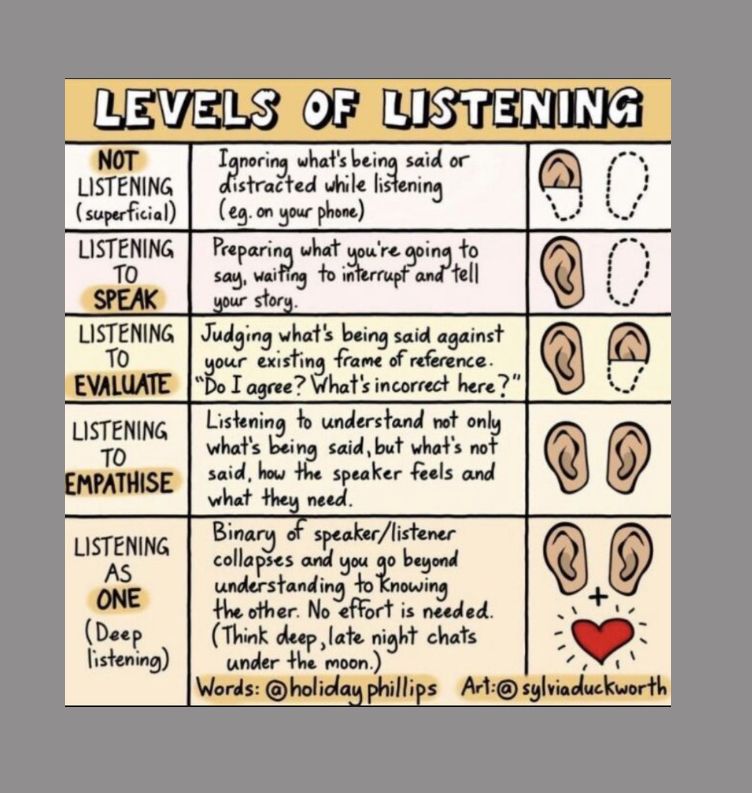Wisdom - Most people do not listen..
“Most people do not listen with the intent to understand, they listen with the intent to reply” - Stephen R. Covey

Last weekend I hosted a masterclass session for a group of ladies in Bangladesh. A common theme which came about was around their own performance in their lives and how they can be there for members of their families in an inspiringly powerful way which is personal to them. Undoubtedly there are many ways but the four we concentrated on were- Questioning, Listening, Empathy and Reflection/Thinking.
So I thought I would share some additional points, observations or maybe challenges to think about?
How well do we listen? I mean really listen? I recently came across a visual by the Emotional Intelligence Institute, and I was provoked how they positioned the different levels of listening.
As a Coach, listening is one of the core elements of Coaching, in both listening to what is being said, and what isn’t being said. I’m sure many of us may believe ,or think, yes I listen really well, all of the time.
But, do we really, or is it a case of we might think we do depending on what might grab our attention? I recognise myself in all of these areas at different times, but what might be the consequence of not listening, or only hearing part of something?
What situations have we come across where we might not have been listening to the level we should have? Skilful, accurate, empathetic listening is one of the key ways in which a Coach can convert empathy. I have an experience where I finished my first coaching conversation with someone new, and they told me at the end of the conversation “You listened to me in a way, which I don’t think I have experienced”.
There is a difference between listening to someone and listening with empathy and the impact can be significant. Looking at the visual I have added with this post, where do you see your levels of listening? Have some levels resonated with your experience? How well have you listened in the number of conversations you’ve had today?
How could you develop as a listener?
Practising Attention - Is about getting used to being still, silent and outwardly focused. Mindful meditation can helps many individuals do this. But many other practices and activities that require stillness and silence - like fishing - can help too.
Practising Exploration - involves parking assumptions and being curious. Things which come up in the mind can be written down and asked through questions for clarity of understanding.
Practising Observation - by listening without words. Observe individuals in a public place and take a guess of where their energy is at by the way they move, their expressions and or their dialogue.
Practising Resonance - Getting used to noticing what you are feeling. You can do that by listening to music, through art, theatre, spiritual verses, sports - anything that hits you first somewhere in your body without your mind getting involved.
Which elements would you practice?
Visual Credit - Emotional Intelligence Institute
Love & Light
Shofna



All Rights Reserved | Just Love
